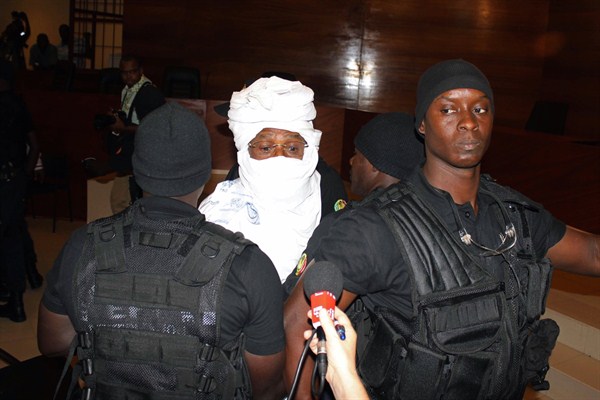The trial of Hissene Habre, the former leader of Chad, on charges of war crimes, crimes against humanity and torture has begun in the Senegalese capital, Dakar. Habre, who ruled Chad from 1982 to 1990, is accused of presiding over a network of secret police known by its French acronym, the DDS, which carried out systematic torture and disappearances during his rule. A Chadian truth commission in the 1990s established that there could have been as many as 40,000 victims.
The reopening of the trial at the Palace of Justice in Dakar on Monday was a media spectacle—amid chaotic scenes, Habre had to be carried into the courtroom by security agents wearing ski masks after he refused to appear. He then spent several minutes being restrained by the security agents and shouting “Shut up!” at a court clerk who was reading out the names of alleged victims. The case has already been adjourned once, in July, due to Habre’s disruptive behavior, after the former dictator refused to speak to the judge and dismissed his defense team. A new, court-appointed defense team was then given six weeks to study the dossier and prepare for the trial.
The judge, Gberdao Gustave Kam of Burkina Faso, now appears to have taken the view that the case must proceed, even if Habre still refuses to cooperate with his defense. On Tuesday morning, Kam began reading the 187-page indictment again, which included testimony about the execution of 152 prisoners of war in 1983 and the exhumation of mass graves. For many in Chad, it is now time to look beyond Habre’s diversionary tactics in the courtroom to the thousands of victims of his dictatorship.

